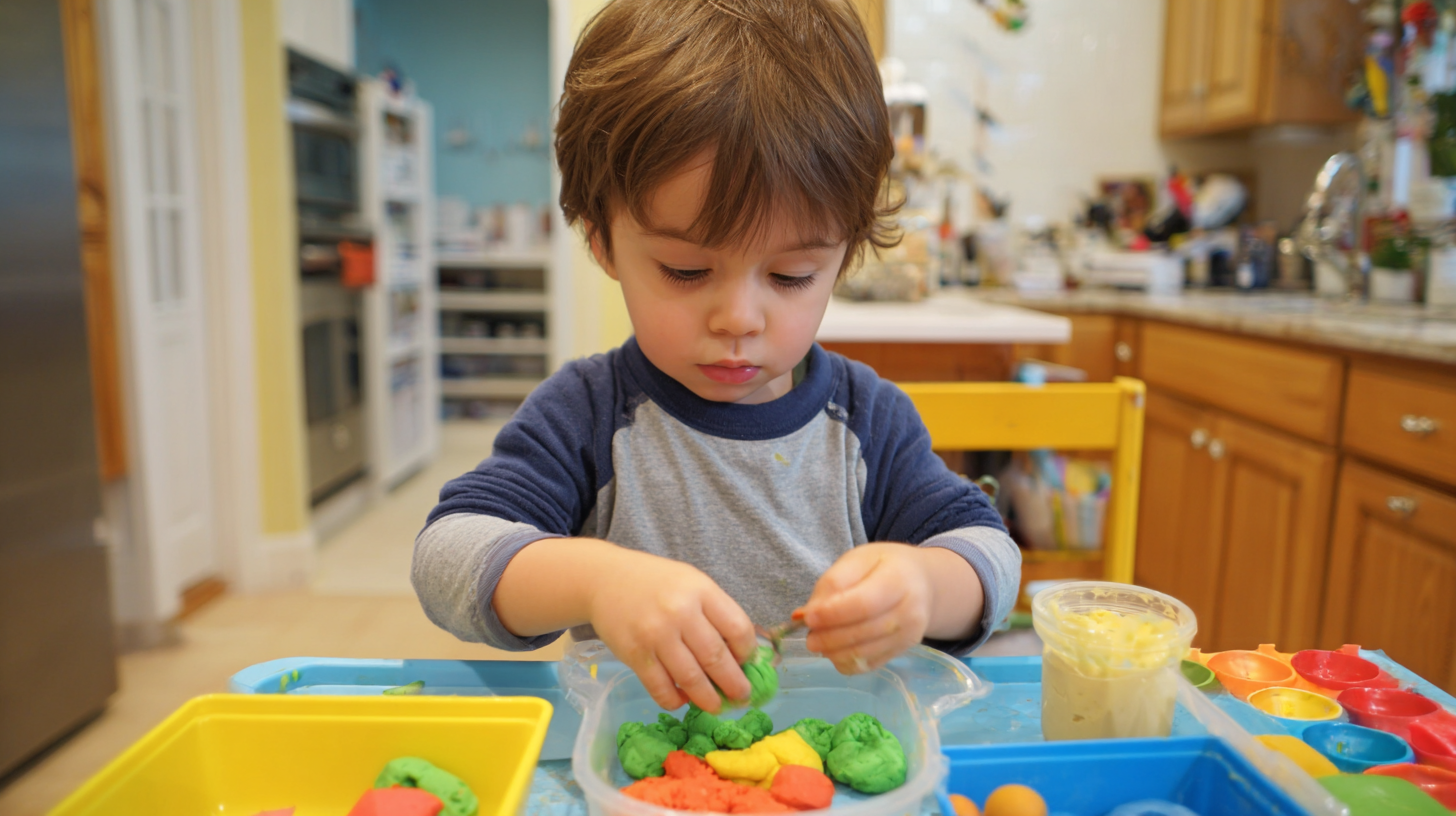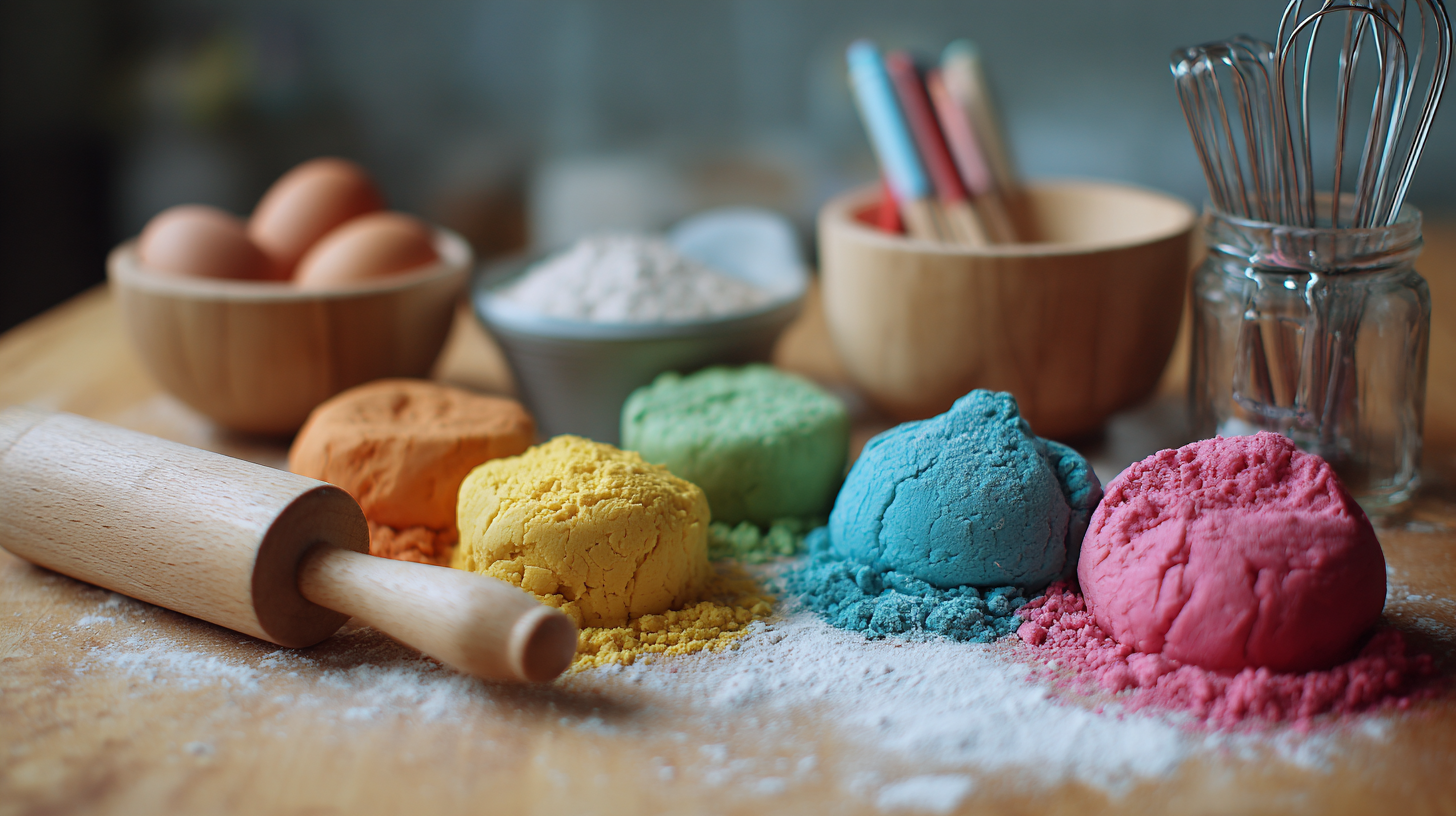The Science Behind Play Dough How it Fuels Creativity and Learning in Children
In recent years, the significance of hands-on play in childhood development has garnered increasing attention from educators and psychologists alike. One such medium that not only entertains but also enhances creativity is Play Dough. According to the American Academy of Pediatrics, engaging in play-based activities significantly contributes to children's emotional and cognitive growth, allowing them to express themselves while developing essential motor skills. A report by the National Association for the Education of Young Children emphasizes that children who regularly participate in play activities, including manipulative tasks such as molding Play Dough, exhibit improved problem-solving abilities and higher levels of creativity.

This introduction will delve into the scientific underpinnings of Play Dough, illustrating how it acts as a powerful tool for learning and fostering creativity among young minds. By exploring various methods and techniques, we can better understand how this simple, malleable substance can enrich a child's developmental journey.
Understanding the Composition of Play Dough and Its Benefits
Play dough is not merely a fun activity for children; its composition plays a critical role in enhancing creativity and learning. Traditionally made from simple ingredients such as flour, water, salt, and a binding agent, play dough is non-toxic and safe for children. According to the American Academy of Pediatrics, activities involving materials like play dough can stimulate cognitive development and improve fine motor skills, which are essential for tasks such as writing and buttoning clothes. The tactile nature of the dough also encourages sensory exploration, allowing children to engage their sense of touch while molding, kneading, and sculpting.
Research indicates that play dough can serve as a tool for emotional and social development as well. A study published in the Journal of Occupational Therapy shows that children who engage in play with dough exhibit higher levels of creativity and problem-solving capabilities. The creative process involved in shaping and designing with play dough promotes imaginative play, which is crucial for cognitive growth. Furthermore, as children collaborate and share their creations, they develop important social skills, such as cooperation and empathy. With its unique benefits stemming from its simple yet effective composition, play dough is undeniable in its power to foster holistic development in young learners.
The Impact of Play Dough on Children's Creativity and Learning
This chart demonstrates the various developmental benefits that play dough provides to children. It highlights how engaging in play with dough significantly enhances creativity, fine motor skills, cognitive abilities, social interactions, and emotional regulation.
Exploring the Role of Play Dough in Developing Fine Motor Skills
Play dough serves more than just a fun activity for children; it plays a pivotal role in developing fine motor skills, which are essential for tasks such as writing, buttoning clothes, and using utensils. According to a report by the National Association for the Education of Young Children (NAEYC), engaging in activities that require hand-eye coordination, like molding play dough, significantly enhances these skills. When children manipulate play dough—rolling, squishing, and shaping—it promotes the development of the small muscles in their hands and fingers, laying a foundational skill base that aids in their overall physical development.
Moreover, research has shown that children who regularly engage in tactile play, including play dough, demonstrate superior fine motor control compared to their peers who do not. A study published in the Journal of Occupational Therapy found that children who participated in dough-based activities scored 20% higher in fine motor skills assessments. This emphasizes the importance of incorporating play dough into early childhood education, as it not only fosters creativity and imagination but also equips children with the dexterity needed for more complex tasks in their later developmental stages. Thus, the humble play dough is a powerful tool in nurturing essential skills in young learners.

Incorporating Play Dough into Educational Activities for Enhanced Learning
Incorporating play dough into educational activities can significantly enhance learning experiences for children. This versatile material not only sparks creativity but also serves as a crucial tool for teaching essential skills. When engaging kids in play dough activities, educators can introduce concepts such as shapes, colors, and even basic math with hands-on manipulation. For instance, children can mold different geometric figures, allowing them to visually and physically explore these important mathematical ideas.
Tips: To maximize the learning potential, create themed play dough sessions that align with current curriculum topics. For example, if children are learning about animals, encourage them to mold their favorite creatures. This type of interactive activity not only reinforces their knowledge but also makes learning enjoyable.
Another effective approach is to use play dough in storytelling. Invite children to create characters and settings from their favorite stories, fostering both creativity and comprehension. This activity promotes language development and narrative skills while allowing kids to express themselves artistically. By integrating play dough into diverse educational scenarios, children can better grasp complex concepts in a fun and engaging manner.
Fostering Creativity Through Open-Ended Play with Dough
Open-ended play with dough serves as a powerful tool for fostering creativity in children. Unlike structured toys, play dough allows kids to use their imagination freely, transforming simple material into anything they envision—from fantastical creatures to intricate landscapes. This limitless potential encourages children to explore their ideas and make choices, which not only enhances creativity but also builds confidence in their abilities.
Tips for encouraging open-ended play include providing various tools and materials alongside the dough. Items such as cookie cutters, plastic utensils, and natural elements like leaves or pebbles can inspire new ways to create. Parents can also join in the play, asking open-ended questions like “What will you make next?” or “How does this shape feel?” to stimulate conversation and further imaginative thought.
Moreover, setting up a designated play area can enhance the experience. Ensure the space is inviting and accessible, with enough room for mess and exploration. This physical environment can boost creativity by allowing children to focus on their play without the limitations often felt in more structured settings. Encouraging such an atmosphere of exploration will fuel both creativity and learning through their hands-on experiences with dough.
Encouraging Social Interaction and Collaboration with Group Play Dough Activities
Group play dough activities not only stimulate children's creativity but also serve as an excellent platform for encouraging social interaction and collaboration. According to a report by the American Academy of Pediatrics, engaging in collaborative play significantly enhances children's social skills, including communication, negotiation, and empathy. When children work together to sculpt and create with play dough, they learn to share ideas and resources, fostering teamwork and a sense of community. This kind of interactive play can lead to greater emotional development and improved relationship-building skills.
Furthermore, a study published in the Journal of Creative Behavior highlights that group play activities can boost problem-solving abilities by allowing children to engage in role-playing and collective brainstorming. As children navigate through challenges posed during group projects, they practice essential life skills, such as critical thinking and conflict resolution. The value of play dough in group settings extends beyond mere fun; it reinforces the importance of cooperative learning, laying a foundational framework for future collaborative experiences in academic and social environments.





